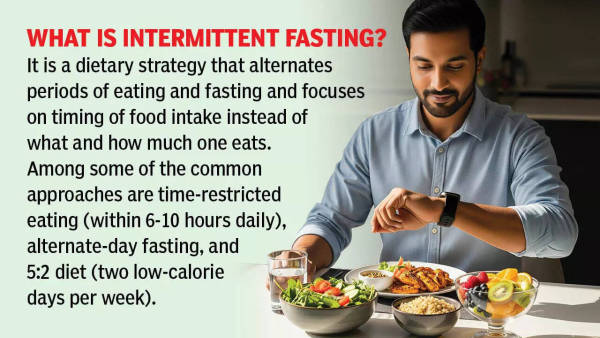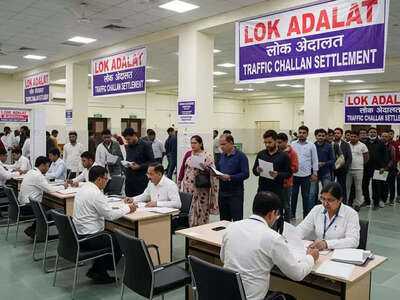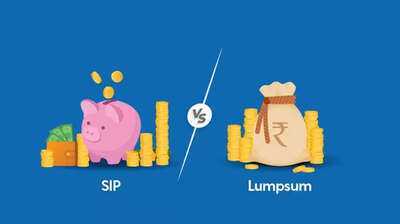
Intermittent fasting , seen by many as the most convenient way to shed those extra kilos, is back as a talking point after a recent study said it may actually harm cardiac health.
Diabetologist Dr Anoop Misra takes Durgesh Nandan Jha through facts & myths surrounding this
People swear by intermittent fasting’s effectiveness in losing weight. But a study published in Diabetes & Metabolic Syndrome: Clinical Research and Reviews suggests it could increase cardiovascular mortality risk by 135%. How do you see this?
Yes, many people think intermittent fasting is safe and does not require monitoring from a nutritionist. This perception may not be entirely correct. The study reported that people with an eating window of or less than 8 hours a day had a 135% higher risk of cardiovascular mortality compared to those eating in a 12-14 hour window. These are indeed alarming statistics, reported for the first time, but they also teach us some important lessons. First, intermittent fasting may not be as safe as many have assumed. Second, this study is not the final word, but it does serve as an important warning.
Are you advising against intermittent fasting or would you suggest doing it with safeguards?

Intermittent fasting can be done judiciously. A moderate version (10-12 hour eating windows, aligned with circadian rhythm) may be safer. People who have or are at risk of heart disease, stroke, kidney failure and a history of recurrent episodes of low sugar, and those with diabetes on multiple drugs and insulin must avoid it. Diseases, sugar and metabolic profile, lifestyle and cultural context must guide recommendations. It should also be done under supervision.
Have you come across complications in people undertaking intermittent fasting?
I recently saw a 58-year-old woman weighing 95kg with a 15-year history of type 2 diabetes, established heart disease, and hepatomegaly (enlarged liver). She had sought medical advice for weight loss , and we suggested pharmacological intervention, but she chose intermittent fasting. In her case, it was time-restricted eating with an eight-hour window. After seven days of intermittent fasting, she was found comatose in her room. Her blood glucose was 45 mg/decilitre. She was stabilised after intravenous glucose but sustained residual brain damage because of prolonged low blood sugar.
So, what is the ideal way of losing weight?
Any attempt at weight loss should be safe, sustainable and individualised. One must have a balanced diet, which is calorie restricted, high on fibre, has more vegetables and less saturated fat. A disciplined, consistent low-calorie diet with all meals on time often achieves results equal to or better than intermittent fasting. Regular physical activity, good sleep and stress management are important. Medical options such as drugs like Wegovy and Mounjaro or bariatric surgery should be reserved for those with severe obesity or other complications.
-
Guidelines for Displaying Ancestral Photos in Your Home

-
UK warns of visa restrictions for non-cooperative nations: What it means for Indians

-
How Pitru Dosha Shapes Marriage Delays and Family Disputes

-
Traffic Challan: No matter how big the challan is? It can be forgiven in Lok Adalat; you just have to do this on 13th September..

-
SIP Vs Lumpsum: Where will you get more returns if you invest Rs 5000 every month?
